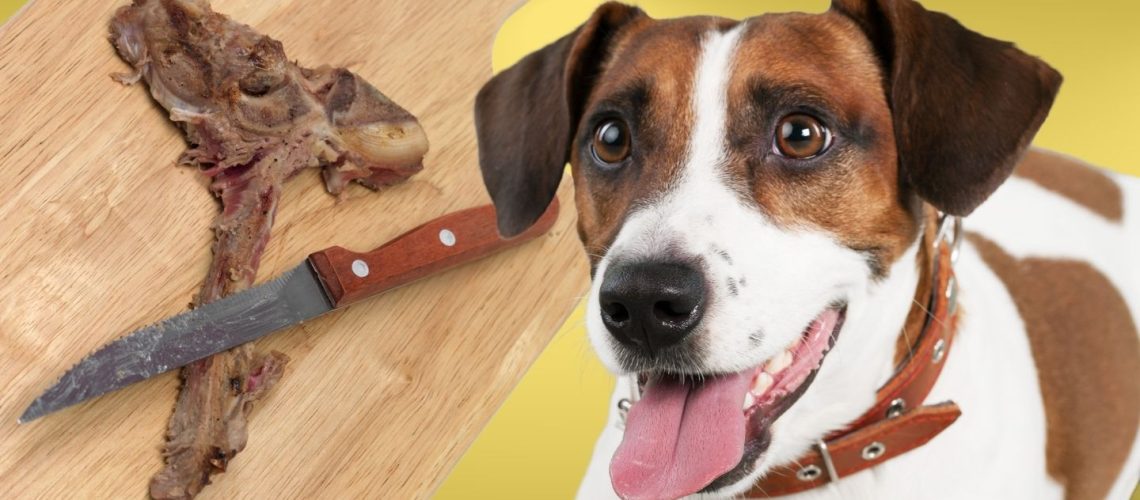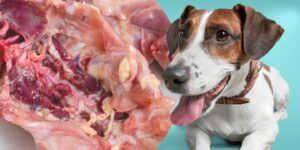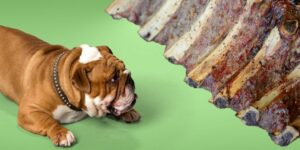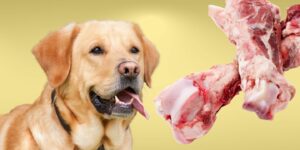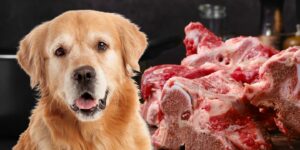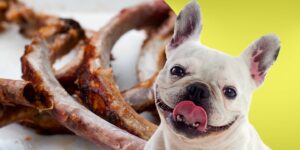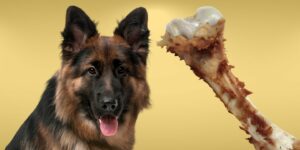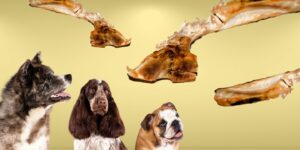The short answer is no, dogs should not eat steak bones. While it may be tempting to share a tasty steak bone with your furry friend, these bones can be dangerous and potentially even lethal for dogs. Knowing which foods are safe for your dog to consume is important to ensure their overall health and well-being.
Risks Associated with Steak Bones
Choking Hazard
One of the main risks associated with steak bones is the choking hazard they present, especially for small breeds. Dogs can easily become overly enthusiastic while chewing on a bone and may accidentally swallow a piece that is too large, leading to choking.
Splintering and Sharp Fragments
Steak bones are also dangerous because they can splinter and break into sharp pieces when chewed. These sharp fragments can cause serious internal injuries, including punctured organs, intestinal blockages, and cuts along the digestive system.
Dental Damage
Chewing on hard steak bones can lead to dental issues in dogs, such as cracked teeth and tooth fractures. These types of injuries can be painful and may require expensive veterinary treatment to repair.
Infections and Bacterial Contamination
Cooked bones, including steak bones, may carry a risk of bacterial contamination. In addition, a dog that is injured by a sharp bone fragment can develop an infection at the site of injury, requiring further veterinary care.
Safe Alternatives to Steak Bones
Raw Bones
If you still wish to give your dog a bone, consider offering raw bones from large animals, such as cows or deer. These bones are less likely to splinter and can promote dental health and provide mental stimulation for your dog. However, it's important to supervise your dog when chewing any bone and ensure they do not swallow large pieces.
Bone-Free Chew Toys
As a safer alternative to bones, there are many bone-free chew toys available that can satisfy your dog's need to chew. These toys are specifically designed to last a long time and not splinter or break apart, ensuring your dog's safety.
Safe Dog Treats
Look for dog treats that are specially designed for dogs and pose no risk to their digestive systems. These treats provide a tasty and safe option for rewarding your pet and satisfying their chewing instincts.
Preventing Accidental Consumption
Proper Disposal of Steak Bones
To reduce the risk of your dog accidentally consuming a steak bone, practice proper disposal habits. This might include wrapping the bone in a plastic bag before placing it in a covered trash can or disposing of it in a pet-proof garbage enclosure.
Training and Supervision
Training your dog not to eat inappropriate items and supervising them when around potential hazards, such as during mealtime, can help prevent accidental consumption of bones or other dangerous items.
Recognizing and Responding to Signs of Distress
Symptoms of Bone Ingestion
If your dog has consumed a steak bone, watch for symptoms such as vomiting, diarrhea, lethargy, loss of appetite, and abdominal pain. These signs may indicate that your dog is experiencing distress due to the bone ingestion.
Seeking Veterinary Care
If you notice any of the above symptoms, it is crucial to seek immediate veterinary care for your pet. Your veterinarian may need to perform diagnostic tests and provide appropriate treatment to address any potential injuries or complications.
Final Thoughts
In conclusion, allowing dogs to consume steak bones is not recommended due to the numerous dangers they pose. Providing your dog with safe alternatives for chewing, such as raw bones, bone-free chew toys, or specially designed dog treats, can help protect their health while satisfying their natural instincts. If you remain unsure about the best options for your pet, consult with your veterinarian for further guidance on appropriate treats and chews.

